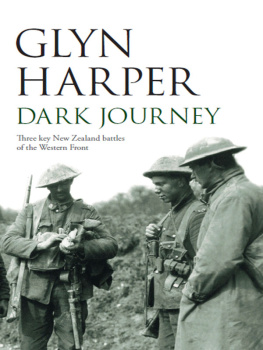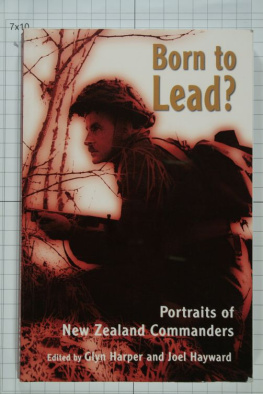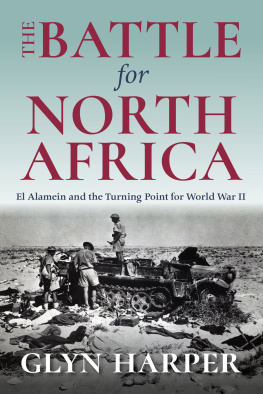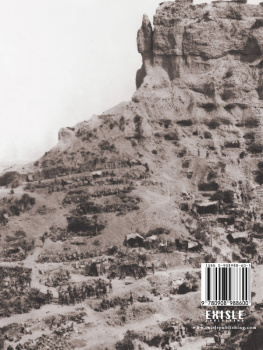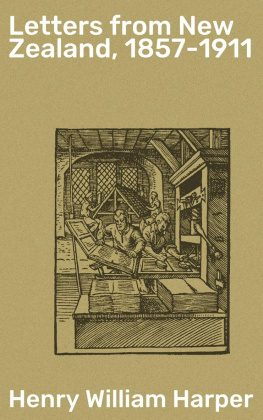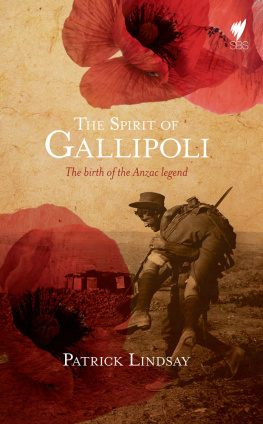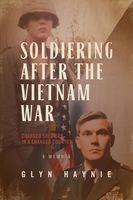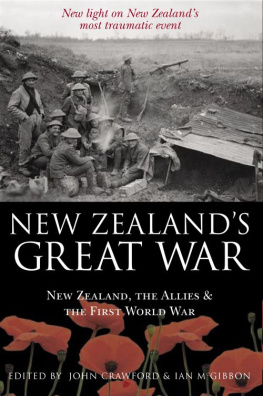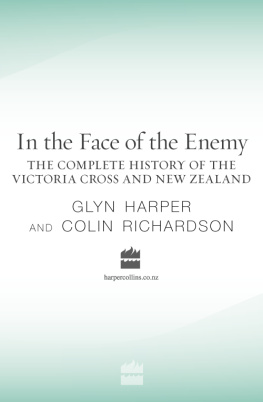L ETTERS F ROM G ALLIPOLI
NEW ZEALAND SOLDIERS WRITE HOME
EDITED BY GLYN HARPER
FOREWORD
M AJOR G ENERAL R HYS J ONES , C HIEF OF A RMY
G ALLIPOLI, THROUGH BOTH REALITY and legend, has had a significant influence on the culture and heritage of New Zealand and Australia. The loss of life in the First World War affected all communities in the two countries. Although not the largest battle during the war, Gallipoli was the first major campaign for our soldiers and, specifically, the first time our countries were faced with massed casualties. We still feel those effects nearly 100 years later and the national feeling for the significance of Anzac Day ceremonies is having resurgence across the two countries.
Gallipoli itself is a classic example of a military operation. The launching of an amphibious operation was a bold gamble: if successful the Gallipoli campaign would have significantly changed the course of the war. Personal acts of outstanding heroism, on both sides, punctuate the accounts of the battles. While the generals thought about manoeuvring for advantage on a grand scale, the soldiers war was about staying alive and keeping his mates safe. Some opportunities were seized while others were lost. Some brilliant plans worked while others collapsed through poor coordination or stubborn enemy resistance. Gallipoli is characterised by all of these aspects. On both sides of the conflict brave and skilful soldiers fought it out on inhospitable terrain. These were ordinary men, doing extraordinary things under incredibly difficult circumstances.
Almost a century later, our thirst for understanding this campaign continues, but the aspects we want to know about have evolved. Early on, official histories and campaign studies were produced explaining the objectives of the battles and examining their success or failure. These histories, however, even though talking about the loss of life and hardships that were experienced, did not give much insight into the real day-to-day aspects of the life of a soldier. War is about people. What the soldiers thought about, what they expressed to those at home and what they concealed, what they feared and what they clung to for comfort are now of strong interest.
Being relatively young countries, New Zealand and Australia still have people alive who can relate their experiences on most issues of significance. For Gallipoli, this is not the case as the veterans have long since passed on. We must therefore turn to their words in other mediums in order to understand their experiences. Even that is not easy. The war was so horrific that most who returned felt that they could not relate what they had been through to those who had not gone through it themselves. Most did not talk much of the war, apart from with other veterans, which was why the Returned Services network became so important and developed such a strong fellowship in our countries. The bonds the soldiers had to forge to stay alive kept strong long after they returned. In their letters home, many wrote as much to comfort their friends and families as they did to gain comfort themselves. But most wrote about what they saw and felt and it is through those letters that we can get a glimpse of warfare at the lowest level that of individuals fighting for their lives and those of their friends, not for honour and glory. Despite the horrors of modern warfare, nothing that we are experiencing today can compare to what these soldiers went through on Gallipoli.
Our military heritage owes much to those historians who continue to give us insight to Gallipoli and the battles that have followed since then. Glyn Harper is one of the prominent contemporary historians in this field and this book can stand proudly amongst his other works, particularly those on the First World War. My thanks go to him for his continued effort to bring this history into our lives. As we move closer to commemorating the centenary of Gallipoli, works such as Letters from Gallipoli will better enable us to understand the reality that our people went through.
This is not a book just about the Gallipoli campaign. This is a book about and by the people who served in it: those whom we mention every Anzac Day when we recite the words We shall remember them.
PREFACE
T HE C OLLECTION
T HIS BOOK IS PRIMARILY a collection of letters written by New Zealand soldiers who served in the Gallipoli campaign. Some letters from Turkish soldiers whom they were fighting, as well as letters written by two New Zealand nursing sisters, have also been included. It has been my aim to arrange these letters to reveal essential elements of the campaign in the words of those who were there.
So why letters? Other forms of first-hand testimony, such as memoirs, diaries, telegrams, postcards and oral interviews, while undoubtedly revealing, were rejected for this publication because they generally lack the qualities of immediacy, descriptive power, intimacy and direct appeal that letters have. Throughout the war, letters were used as a means of expressing how the soldiers really felt about the dreadful conditions they endured and the terrible fates that could befall them and their friends.
It is impossible to overstate the importance of letters from home, a vital link to families and communities back in New Zealand. Despite the slowness of their delivery most letters arrived by sea mail around two months after they were written letters with family and local news were eagerly awaited by all soldiers. As one of the letter writers in this collection noted, when a New Zealand mail delivery arrived safely at Gallipoli, a sort of secret and silent cheerfulness possess[es] everybody and it is then you see the far away looks. In fact, after the quality and limited variety of food, lack of mail was the Gallipoli soldiers next most common complaint. Another common complaint expressed in some of the letters here was the lack of writing paper and implements. As one writer notes: paper and ink are things of the past. Soldiers often resorted to inventive ways to get around the lack of writing paper and most of the letters sent home were written in pencil.
In return for the family and local news they received, the soldiers, as will be seen in this collection, filled their letters home with considerable detail. Accounts of recent military actions were usually included and the letters in this collection contain accounts of nearly all the significant actions in which New Zealanders fought at Gallipoli. News of New Zealand casualties was always included when known. Other common topics in their letters included the dreadful conditions in which they were forced to live; the challenging climate at Gallipoli; their changing attitudes to the Turks; food; treatment of the wounded; the experience of being under fire; the experience and suffering of being wounded; and so much more. The Gallipoli campaign as seen and lived by New Zealand soldiers, in its many facets, is the key feature of this collection.
Cecil Malthus, Gallipoli veteran and, later, professor of modern languages at Canterbury University, discovered the power of letters when he compiled his classic account of his time on the peninsula, Anzac: A Retrospect:
I have quoted freely from the letters I wrote at the time. Though fully aware of their youthful navet I decided that they had some value and interest as an immediate first-hand impression. I fully expect that they will be found inaccurate, but this inaccuracy, though regrettable, is also a part of the picture. The ordinary soldier had seldom more than a jumbled impression of what was going on.



